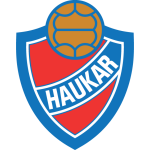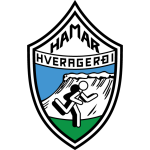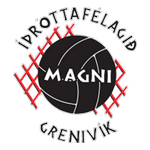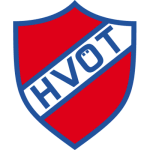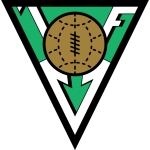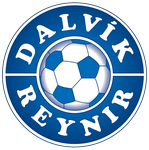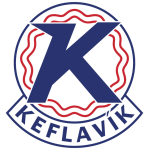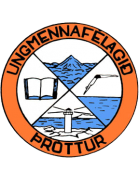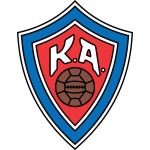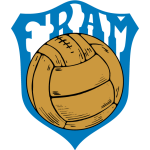Iceland (League) - AI Football Predictions Online
| AI | ||
|---|---|---|
 Cup Cup | ||
| 2025-03-30 10:00 |
| |
| 2025-03-30 10:00 |
| |
| 2025-03-30 13:00 |
| |
| 2025-03-30 14:00 |
| |
| 2025-04-01 14:00 |
| |
| 2025-04-06 10:00 |
| |
 U19 League U19 League | ||
| 2025-03-30 12:00 |
| |
| 2025-04-02 14:00 |
| |
| 2025-04-02 14:00 |
| |
| 2025-04-02 15:00 |
| |
| 2025-04-05 13:00 |
| |
| 2025-04-09 14:00 |
| |
| 2025-04-09 14:00 |
| |
| 2025-04-09 15:15 |
| |
| 2025-04-12 10:00 |
| |
 Úrvalsdeild Úrvalsdeild | ||
| 2025-04-05 15:15 |
| |
| 2025-04-06 10:00 |
| |
| 2025-04-06 12:15 |
| |
| 2025-04-06 15:15 |
| |
| 2025-04-07 14:00 |
| |
| 2025-04-07 15:15 |
| |
The Rise of Icelandic Football: A Journey Through a Unique League
Iceland, a country known for its breathtaking landscapes and rich cultural heritage, has recently captured the footballing world’s attention. The Icelandic football league system, particularly the Úrvalsdeild karla, has evolved significantly over the past few decades. This transformation has not only elevated the quality of football played on the island but has also fostered a sense of national pride among its citizens. From the picturesque stadiums to the passionate local fans, Icelandic football offers a unique experience that is both captivating and inspiring.
The Structure of Icelandic Football
The Icelandic football league system consists of several tiers, with the Úrvalsdeild karla as the premier division. This league features ten teams that compete each season for the coveted title of national champion. The league operates on a traditional round-robin format, where each team plays the others twice, once at home and once away. The team that accumulates the most points by the end of the season is crowned the champion.
Below the Úrvalsdeild, the league is structured into the 1. deild karla and several regional leagues. This tiered system allows for promotion and relegation, giving lower-tier teams the opportunity to ascend to the top division based on their performance. The competition is fierce, with clubs from various regions of Iceland vying for glory, and each match brings its own story and drama.
Clubs and Rivalries: The Heart of Icelandic Football
Clubs like KR Reykjavik, FH Hafnarfjordur, and Valur Reykjavik are some of the most successful in Icelandic football history. KR Reykjavik, founded in 1899, is the oldest club in the country and has a rich history, boasting numerous league titles. Their fierce rivalry with Valur Reykjavik, known as the Reykjavik derby, brings an electric atmosphere to the capital's streets as fans from both sides passionately support their teams.
Another notable club, FH Hafnarfjordur, has made a significant mark in recent years, consistently challenging for the title. Their commitment to developing young talent has resulted in a steady influx of skilled players entering the league. This focus on youth development has become a common thread among Icelandic clubs, with many investing in training facilities and programs to nurture the next generation of football stars.
The National Team: A Source of Inspiration
The success of the Icelandic national team has played an essential role in the growth of football within the country. Their remarkable journey to the quarter-finals of the UEFA Euro 2016 and subsequent qualification for the 2018 FIFA World Cup captured the hearts of fans worldwide. The team's success is a testament to the dedication and talent present in Icelandic football.
Players like Gylfi Sigurdsson, who has showcased his skills in the English Premier League, and Hannes Halldorsson, the goalkeeper who gained fame for his penalty save against Lionel Messi during the World Cup, have become symbols of Icelandic football's rise. These players inspire young athletes across the nation, encouraging them to pursue their dreams and represent their country on the international stage.
Challenges and Opportunities Ahead
Despite the successes, Icelandic football faces several challenges. The harsh climate, with its long winters and limited daylight, can hinder training and match schedules. Additionally, the small population means that the talent pool is relatively limited compared to larger footballing nations. However, these challenges have also led to innovative solutions, such as the use of indoor training facilities and artificial pitches, which have become commonplace.
Furthermore, the increasing popularity of the sport has attracted investment, both locally and from abroad. Sponsorship deals and partnerships with international clubs are becoming more prevalent, providing financial support to local teams. This influx of resources can help improve infrastructure, coaching, and overall competitiveness within the league.
The Future of Icelandic Football
As Icelandic football continues to grow, the future looks promising. The national team's achievements have sparked renewed interest in the sport, with young players eager to follow in the footsteps of their heroes. The league's structure, with its promotion and relegation system, ensures that clubs remain competitive, fostering excitement among fans.
Moreover, the ongoing development of youth academies and training programs across the country is vital for sustaining this momentum. By focusing on grassroots initiatives, Iceland can nurture homegrown talent and ensure that the next generation of players is equipped to compete at higher levels.
Icelandic football embodies the spirit of resilience and determination characteristic of this small nation. The league's unique charm, coupled with its rich history and passionate supporters, makes it a remarkable part of the global football landscape. As the country continues to make its mark on the sport, the world will undoubtedly keep a watchful eye on the future of Icelandic football.
 English
English  Español
Español  Italiano
Italiano  Deutsch
Deutsch  Polski
Polski  Português
Português  Français
Français  Nederlands
Nederlands  Svenska
Svenska  Türkçe
Türkçe  Hrvatski
Hrvatski 


